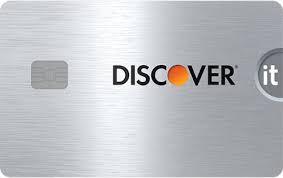- myFICO® Forums
- FICO Scoring and Other Credit Topics
- Personal Finance
- What would you in my situation?
- Subscribe to RSS Feed
- Mark Topic as New
- Mark Topic as Read
- Float this Topic for Current User
- Bookmark
- Subscribe
- Mute
- Printer Friendly Page
What would you in my situation?
Is your credit card giving you the perks you want?
Browse credit cards from a variety of issuers to see if there's a better card for you.
- Mark as New
- Bookmark
- Subscribe
- Mute
- Subscribe to RSS Feed
- Permalink
- Report Inappropriate Content
What would you in my situation?
I've read through alot of the topics in this forum over the last year.
I currently have mutliple credit cards and all of them have a balance.
Amex: $500, CL $1000
Amex2: $1200, Cl $2000
Best Buy $1600, CL $3500
BOA: $5100, CL $6000
CCU: $3500, CL $5000
Citi: $3500, CL $4200
Discover: $1700, CL $2500
Suntrust: $1900, CL $2800
WF: $3500, CL $5000
The only two with interest right now are BOA and CCU. CCU is at 13% and BOA is at 29% if I'm not mistaken.
Life happens and I applied for almost all of those credit cards back in July. Kind of got addicted to the approval and then like I said life happened and unfortunately had to put the money on my CC's.
I make roughly $65k/year and have $900 in car payments. No rent. Other expenses come out to about $500/month.
Right now I've been paying down about $650 a month spreaded evenly over my credit cards.
I did see that to boost my score up I should pay off the small debt cards first and also the ones that are charging interest?
What would you suggest my best steps would be.
I'd love to do a balance transfer into one card but I believe I have too many inquiries due to financing 4 cars (this year alone) and opening all of those CC's earlier this year.
- Mark as New
- Bookmark
- Subscribe
- Mute
- Subscribe to RSS Feed
- Permalink
- Report Inappropriate Content
Re: What would you in my situation?
If you make 65k a year, and monthly cost of living is 1500-2000. I would throw at least 2k onto CC. I would pay at least 2x min on all cards, then throw more on those high utilization ones: BOA, WF, etc.
Really need to get this under control, aim to cut balance in half within a year.
- Mark as New
- Bookmark
- Subscribe
- Mute
- Subscribe to RSS Feed
- Permalink
- Report Inappropriate Content
Re: What would you in my situation?
Everybody finds a different method that works best for them to stay on track with debt reduction. Balance transfers can or debt consolidation loans can help, but can also cause more harm than good if you put the spend back on the cards without paying in Full every month.
I have found the Snowball effect to work best for me in paying down debt: Make minimum payments on all accounts; use any extra money you can come up with (savings from you budget from not buying a coffee or going to the movies etc) to make larger payments on the lowest balance first -- once paid off use the money you've been paying on that card (won't be missed because you've been paying debt with it) added to the minimum of the next lowest debt until paid off... rinse and repeat. For me, seeing one to three accounts reporting a zero balance every month helps me stay on track.
For you; based on the statement of BoA and CCU being the only two cards charging interest I'd probably tackle those first to save on interest fees. The exception would be if any of those 0% apr cards have been accruing deferred interest and will be expiring any time soon -- in that case zero those cards first.
Starting Score: EQ:608, EX:617, TU:625
Current Score 3/11/2020: EQ:695, EX:703, TU:720
Goal Score: 740+
Take the myFICO Fitness Challenge









Member of the Synchrony Bank giveth then Taketh away April 2020 Club! $86,900 in available credit gone without warning.
Newest Account July 8, 2020 -- Last HP October 24, 2020 -- Gardening Goal: August 2022 and reach 0/24
- Mark as New
- Bookmark
- Subscribe
- Mute
- Subscribe to RSS Feed
- Permalink
- Report Inappropriate Content
Re: What would you in my situation?
Find an approach that works for you.
Snowball is mathematically slower getting out of debt: giving more of my money to banks is not smart in my book. As a result, simply sort your credit cards (and loans) by APR in decreasing order and just work your way down the list.
29% on any credit card is absurd, pay that off with a quickness even if it's only 20%.
Ultimately if you have to Snowball because that's the only way to stick to a payment plan, go for it... but otherwise throw your cash flow at your highest APR's first and get out of debt the fastest. Keeping score based on interest payments or some other metric should be analagous to number of credit cards at 0 I'd suggest.





















- Mark as New
- Bookmark
- Subscribe
- Mute
- Subscribe to RSS Feed
- Permalink
- Report Inappropriate Content
Re: What would you in my situation?
The good news is that you realize and accept that you need help. Excellent move.
What you have to do immediately is STOP using your CCs! This is VIP!
Two years ago when I first found MyFICO, I’ll never forget a post I read but I don’t remember the author. He/she said that they put all their CCs in a ziplock bag with water and threw it in the freezer. If that’s what you have to do, do it. Get the CCs out of easy reach.
Then, follow the advice from the other posters on how to pay your debt down quickly.
GL2U.
|| AmX Cash Magnet $40.5K || NFCU CashRewards $30K || Discover IT $24.7K || Macys $24.2K || NFCU CLOC $15K || NFCU Platinum $15K || CitiCostco $12.7K || Chase FU $12.7K || Apple Card $7K || BOA CashRewards $6K
- Mark as New
- Bookmark
- Subscribe
- Mute
- Subscribe to RSS Feed
- Permalink
- Report Inappropriate Content
Re: What would you in my situation?
Welcome, @Anonymous. ![]()
I'd go highest interest first with the provision that all cards get more than the minimum each month.
If your utilization were in rougher shape, I'd suggest getting all cards down to below 68.9% utilization before embarking on highest interest first. I think you're OK as far as adverse action (AA), though. Just make sure that the banks see balances going steadily downward.
I'm a fan of snowballing when there are tiny balances that are easy targets. It's nice to get balances like that off the books and reset grace periods. After the easy snowballs, one can shift to high interest first or whatever. However, in this case, no balances stand out as small.
- Mark as New
- Bookmark
- Subscribe
- Mute
- Subscribe to RSS Feed
- Permalink
- Report Inappropriate Content
Re: What would you in my situation?
The best way to do this by far is to tackle the highest interest first.
Get an app like Fudget (free for iOS and Android), put in your monthly income, put in your expenses, that will give you your money available for paying down debt. Add another expense to that budget for money needed for groceries and other things.
Now go open another budget and take the amount that is left over after all expenses and your spending money have been accounted for and add each credit card you have a balance on and put 2x minimum for them except the BoA
What’s left is your monthly payment towards BoA.
Fudget even has a feature that lets you swipe left to mark debts as paid and you can set the dates for each.
I literally don’t know what I would do without it.

I am already budgeted through April as you can see.
- Mark as New
- Bookmark
- Subscribe
- Mute
- Subscribe to RSS Feed
- Permalink
- Report Inappropriate Content
Re: What would you in my situation?
@Anonymous wrote:
I did see that to boost my score up I should pay off the small debt cards first and also the ones that are charging interest?
That is not true. Neither action is best if your primary goal is to make a quick improvement to your score. If score improvement is the main goal, you should do this in the following order:
(1) Pay all cards to below 87%
(2) Pay all cards to below 67%
(3) Pay all cards to below 47%
Then after that you could choose the debt payoff plan that works best for you.
I am not saying that you ought to use the strategy I mention above. I am just answering your question, which is whether the two things you describe were the best ways to produce a score improvement.
If you have a longer timeframe, then the best way is whatever strategy will ensure that you pay off all of your CC debt and never carry a balance again. All roads lead to Rome in this sense -- your score will end up at the same place once you get the debt paid off.
I also like CreditInspired's suggestion to stop using CCs until all debt is paid off.
- Mark as New
- Bookmark
- Subscribe
- Mute
- Subscribe to RSS Feed
- Permalink
- Report Inappropriate Content
Re: What would you in my situation?
Thank you for all the replies!
I have stopped using my credit cards. Like I said life happened a few months ago and thats why so much was needed to put onto credit cards.
I think I'll start with getting a budget app like suggested and find out exactly just how much I can throw at my credit cards.
From there it'll be double the minimums on the 0% cards and all the rest going to the high interest card.
Thank you again for all the suggestions!
- Mark as New
- Bookmark
- Subscribe
- Mute
- Subscribe to RSS Feed
- Permalink
- Report Inappropriate Content
Re: What would you in my situation?
@Anonymous wrote:Thank you for all the replies!
I have stopped using my credit cards. Like I said life happened a few months ago and thats why so much was needed to put onto credit cards.
I think I'll start with getting a budget app like suggested and find out exactly just how much I can throw at my credit cards.
From there it'll be double the minimums on the 0% cards and all the rest going to the high interest card.
Thank you again for all the suggestions!
The budget idea works for me. Needed to start doing repairs and work on energy conservation and the costs got out of hand. Was able to catch a couple of 0% BTs for a twelve month period. To keep things under control I use the budget to ensure regular life items are paid and the rest is being thrown at the debt for improvements with a twelve month pay off so as to NOT pay interest. Did notice that some FICO Score and Vantage Score models DO NOT LIKE my BTs ($645 & $1,670 remaining) ... ! Funny, as the two together are closer to 1.5% utilization for my total available! ![]()